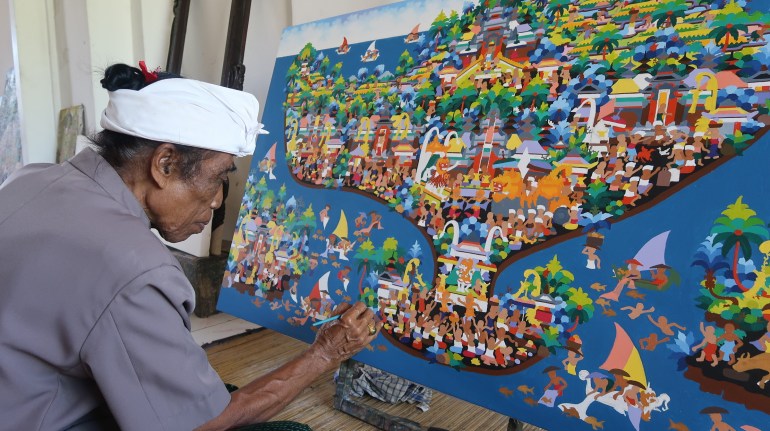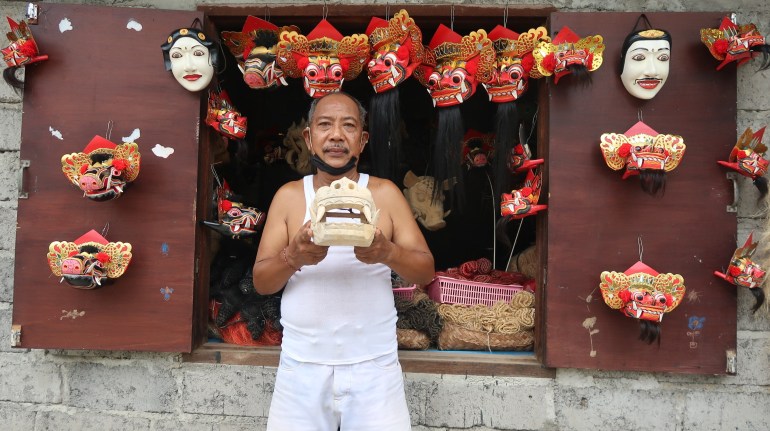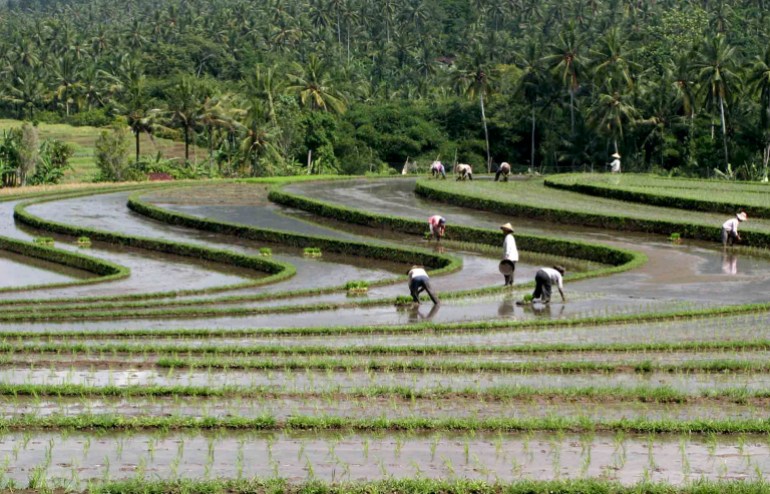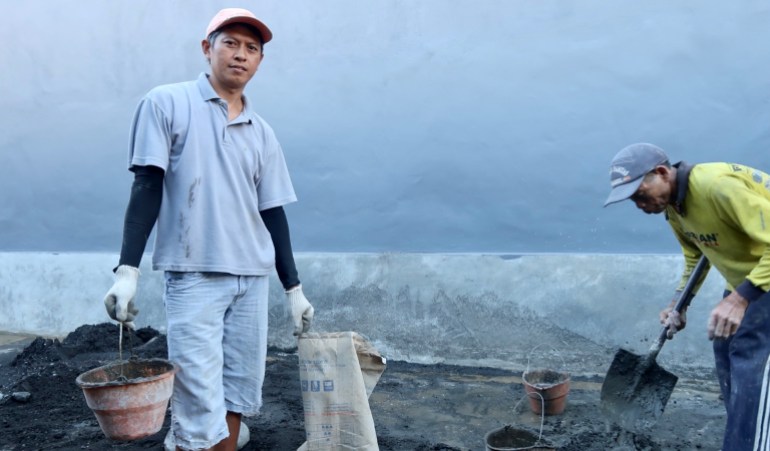In tourist-free Bali, artists persevere through ‘darkest moment’
Art and Bali’s unique Hindu culture are inextricably linked, but the absence of visitors has left artists struggling.

Bali, Indonesia – Sixty years ago, I Ketut Soki was the delighted recipient of his first painting kit – and since that day, he has rarely put his brushes down.
“I still have the spirit to paint. I still have a lot of ideas,” he told Al Jazeera.
Keep reading
list of 4 itemsGunfire breaks out at Indonesian national police HQ in Jakarta
Makassar Palm Sunday bomber was known to Indonesian police
Indonesia recovers cockpit voice recorder of Sriwijaya Air jet
“I paint to maintain the Balinese culture. I want to show people abroad about Bali. I paint the island … harvesting, paddy fields, cultivating.”
The 72-year-old was one of the pioneers of the painting style known as Young Artist, known for its lively and colourful depictions of Balinese life.
But the art scene on the island is different now and many artists in the once-thriving cultural centre are struggling. Bali’s borders are closed to foreign tourists – and in their absence, the prospects for sales are limited.
“Artists feel the impact,” Soki said. “Many people have stopped painting because it is so hard to sell now.”

Each painting can take more than 150 hours to complete but Soki says he has had no choice but to drop his prices.
He still considers himself one of the lucky ones because, with the help of his granddaughter, Dewa Ayu Candra Dewi, he is able to sell some pieces.
“We started to promote his paintings on Instagram at the beginning of COVID because many galleries closed,” she said.
“The other day we sent a painting to the US through the post office.”
‘All I can do’
Others are struggling with the new reality.
For many who call the island home, life changed when the borders closed.
In the village of Batuan, craftsman Wayan Madru carves and paints traditional masks. He studied this craft when he was still in primary school.
Before the pandemic, he sold his masks to foreign tourists as souvenirs.
“There are 304 families in this village and 95 percent are mask craftsmen. Because of COVID, all sales were cancelled,” he said.
“Artists depend on tourism, now that is gone. We can’t find work and life is so difficult.”
He said his income has been reduced to about $30 a month, a fraction of $345 he made before the coronavirus struck.
Some artists in the village have turned to other jobs during the pandemic but the 61-year-old says that is not an option for him.
“I am elderly. I can’t work on a construction site, I don’t have the strength,” he said.
For months, there has been speculation about travel corridors but ambitious plans for Bali’s reopening have so far come to nothing.
Still, in anticipation of that day, vaccinations for tourism workers are under way.
“We are very optimistic, hopefully within a short period of time, we would be able to reopen the borders for the revival of tourism and the economy,” Sandiaga Uno, the minister for Tourism and Creative Economy, said.

Bali’s arts and tourism sectors are closely entwined. In normal circumstances, tour guides take travellers to galleries to see and buy the works on display but now, most guides have had to find other work and some have returned to their villages and the land.
Komang Suarmika, a guide for more than 17 years, is working on a construction site.
“We try to survive with what little we have, we sold our jewellery and other belongings,” he said. “My wife cannot work because our children are young.
“We can’t count too much on tourism for now. What I can do now is hard labour in construction. I’ll do anything for my family.”
While working as a guide, Suarmika taught himself to speak Korean – a useful skill in his previous work and one he hopes he will be able to use once again.
“Economic-wise, this is bad and painful,” he said.
“But this is a lesson for me, to be stronger mentally. And a lesson for our economy, in the future we should not only rely on one thing.”

Indonesian environmental groups have long criticised Bali’s mass tourism approach and they are stepping up calls for a more sustainable model centred on arts, culture and nature.
“Mass tourism has created a lot of problems. The beaches are contaminated, there are uncontrolled developments … and a water crisis,” said I Made Juli Untung Pratama from the Indonesian Forum for the Environment (WALHI).
“We should not rely on the quantity of tourists … mass tourism strays away from Balinese culture and way of living.”
‘Darkest moment’
Gallery owner Gede Susilo Dharma, who is based in the island’s cultural centre of Ubud, hopes that it will not be long before the tourists return.
“It is the worst situation. The darkest moment for the tourism world. There were some incidents like the Bali bombings and volcanic eruptions. But it is worse now,” he said.
The 45-year-old is the owner Mammoth Gallery, which sells handmade statues of wood purchased from artists around the island.
While many artists have been forced to seek other forms of employment, Dharma says he is trying to keep the traditional craft alive.
He continues to commission new sculptures to support the artists – even though his revenue has fallen by almost 100 percent.

“Wood carving is a traditional art of Bali. You need talent – you cannot learn it through formal education,” he said. “If the artists stop, such a great tradition can disappear.”
International media often refer to Bali as a resort island or tropical paradise.
But for Dharma, the island is more than that. It is home – and seeing many Balinese persevere through the economic devastation the pandemic has wrought is deeply personal for him.
While many galleries and businesses have shut down or closed their doors temporarily, the Mammoth Gallery has stayed open.
“Our gallery has to stay alive, we will never shut it down,” he said.
“I want the world to know that we are still fighting.”
